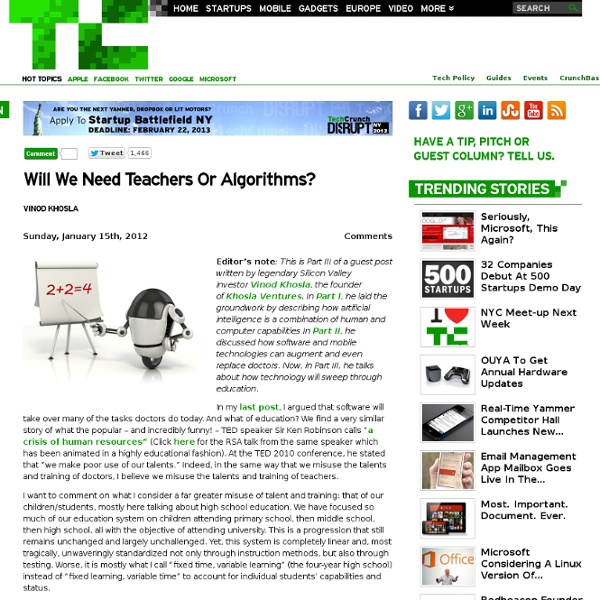Will We Need Teachers Or Algorithms?

Guild eBooks: Handbook on Synchronous e-Learning
January 16, 2007 The eLearning Guild’s Handbook on Synchronous e-Learning is intended for anyone who wants to produce, lead, or promote live, interactive learning events on the Web. Novices will find information on what other people are doing in this medium, which kinds of training and education are best suited to it, how to convert existing classroom content for delivery online, how to lead effective and compelling live learning events on the Web, and how to promote these events to obtain maximum participation. More experienced practitioners will find a wealth of ideas that they can use to improve or enhance their current processes. This e Book was made possible by a generous contribution from WebEx Communications. Depending on the speed of your internet connection, this document could take a few moments to download because of its size (140 pages in PDF format, ~7mb). The content of all Guild eBooks is FREE.
Checklist for strong elearning » Making Change
Do you want a checklist you can use to evaluate your learning design? Here’s my contribution (PDF). I’m calling it a checklist because several people have asked for one, but it’s not really a checklist. Instead of checking a box to say, “Yup, got that covered!” you choose a spot on a spectrum between “action-oriented materials” and “information dump.” There are 14 items to evaluate. This range-finding approach acknowledges that we’re all facing forces that push us toward information dumps. The tool can also be used to clarify what I intend to be the end result of action mapping.
Pedagogy First!
Here I go thinking that I can quickly finish this task as I’m on catch up mode big time. I should have known better!! Having watched the video and read the articles, I am left thinking about Issac Asimov’s Foundation series. A lot of what was said makes me think that we have to be very careful where we go with learning. I think we have to be careful to ensure that students are given the problem solving skills to interact with the vast range of information available to us rather than just relying on being able to find out what we want to know when we want to know about it. First the video I usually turn up my nose at theory as I see myself as a more application person, but the content of this video totally hooked me. As time went on and as my study needs changed, I moved to extramural study (management and maths) in the late 1980s to the early 2000s. Coming back to face to face teaching (IT) in the mid 200s was an interesting time because the Internet was here and making a big impact.
Related:
Related:



